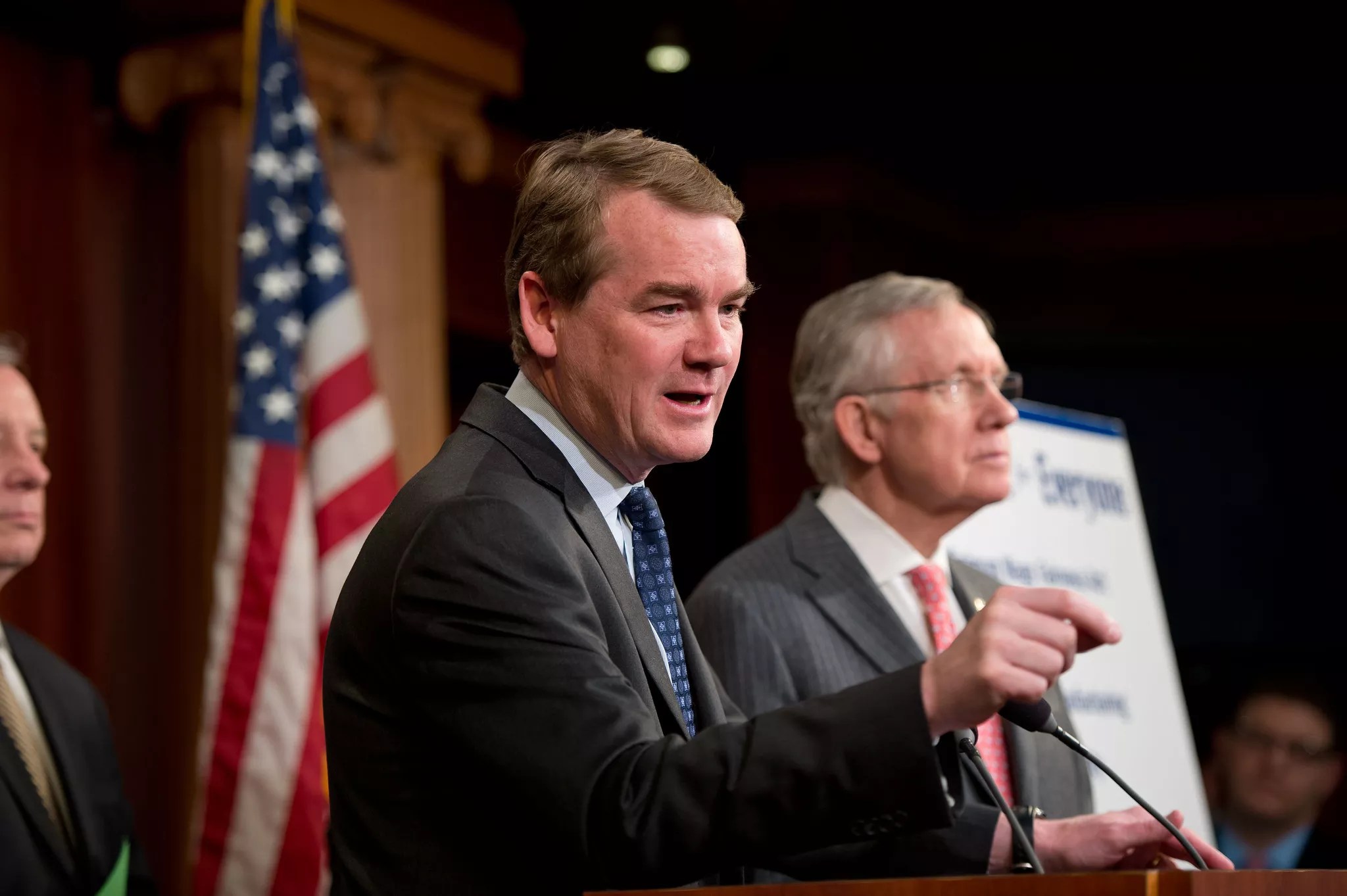
Senate Democrats / Flickr

Audio By Carbonatix
Led by Colorado senator and 2020 presidential hopeful Michael Bennet, Democrats in the U.S. Senate have introduced a bill to prevent the Republican-led federal government from lowballing estimates of the economic damage caused by climate-warming greenhouse gases.
“The Trump administration is deliberately ignoring broad scientific consensus and using shady math to weaken climate protections,” Bennet said in a statement on Wednesday, June 5. “We need to accurately account for the cost of climate pollution in order to protect Americans, design effective policy, and provide market and regulatory certainty.”
The Carbon Pollution Transparency Act would force the government to bolster a metric known as the “social cost of carbon,” used to calculate the risks associated with greenhouse gas emissions. Federal agencies are required to conduct cost-benefit analyses when making rules, and accurately weighing the long-term cost of carbon emissions on the climate can have a huge impact how the government regulates electricity, transportation, agriculture and more.
In essence, setting the social cost of carbon is an attempt to put a price tag on the damage that unchecked climate change will cause in the U.S. and around the world. Unlike a carbon tax or other carbon-pricing mechanisms, it’s simply an analytical tool used by regulators in decision-making, and no actual costs or fees are imposed.
Under the Obama administration, regulators set the cost at roughly $45 per ton of carbon dioxide; the Trump administration, in order to roll back many emissions regulations, has revised it down to between $1 and $7 per ton. Some studies, accounting for the unequal distribution of climate destruction around the world, have estimated the cost of carbon for U.S. emitters to be exponentially higher – as much as $805 per ton.
The latest version of Bennet’s proposal, which was originally introduced in 2017, would revert the federal government’s cost-of-carbon calculation to the Obama-era standard and create an inter-agency panel to revise it every five years, as well as a ten-member “scientific review committee” to recommend changes. It would also allow the cost to be adjusted annually for inflation, rather than remaining fixed.
Bennet’s bill follows the recent passage of a similar measure by the Colorado legislature. The latest reauthorization of the state Public Utilities Commission, signed into law by Governor Jared Polis last week, instructs PUC regulators to weigh the social cost of carbon when considering resource plans or other applications submitted by electric utilities, which could help accelerate the transition to cleaner sources of energy.
The measure “ensures that we are making decisions based on all of the costs and benefits, including the very real costs imposed on our communities by carbon pollution,” said Will Toor, director of the Colorado Energy Office, in a statement on Bennet’s proposal. “The federal government should do the same, and we strongly support this bill.”
Man-made greenhouse gas emissions have already warmed the climate by a global average of about 1°C. Temperatures have risen even faster in Colorado, where a warmer climate has cost the state billions thanks to more intense drought and wildfires. A higher frequency of extreme swings in temperature and precipitation levels, leading to destructive drought-flood cycles, is expected as the climate continues to warm; many towns in Colorado are preparing for potentially devastating floods as the state’s ample snowpack begins to melt this summer.
Bennet, who announced this week that he had qualified for the first Democratic presidential primary debate, has made a moderate, market-friendly approach to climate policy a centerpiece of his long-shot bid for the White House. Despite pressure from activists with the Sunrise Movement and other environmental groups, he has declined to endorse the Green New Deal resolution favored by progressives, instead releasing a $1 trillion plan focused on “catalyzing” private-sector investment in clean energy.
Bennet’s social-cost-of-carbon bill boasts at least sixteen co-sponsors, including fellow presidential candidates senators Kamala Harris and Kirsten Gillibrand, and has the support of a majority of members on Senate Democrats’ Special Committee on the Climate Crisis, which includes Bennet and ten of his Democratic colleagues.